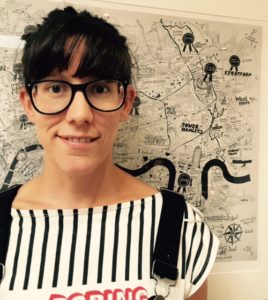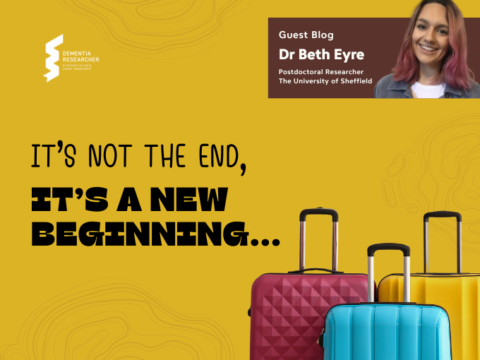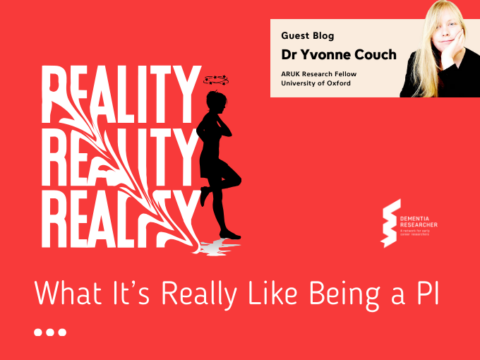
Handing in a piece of written work provides me with equal measures of satisfaction and loss. Each time I have submitted a journal article, a book manuscript or, most recently, my thesis, has been exciting. Yet tinged with a sense of loss- I confess I really enjoy the process of working through and writing these things up. Despite the, at times gruelling, days of writing, re-writing and forcing myself to work harder than usual I find it satisfying and am a little sad when it’s past. I have to remind myself that it doesn’t stop when I stop.
I have tried to reformat the ‘submission’ and consider the it a ‘beginning’. It is the start of the sharing process. Once out in the world it can have an impact on others. Whilst still sat on my desk no one but I knows or cares about what it says.
As a clinician and a researcher I want to develop work that makes a difference to a persons life. The idea that someone might read it and find it useful is fantastic. The idea that i can disseminate and cascade information – not just to one patient but to multiple health professionals and researchers and thus help multiple more patients means it is worth investing time and effort into writing, re-writing, editing, formatting, correcting and so forth. I am keen to develop the research field in this area even more, to push and inspire my profession to deliver the services people with dementia can benefit from.
One of my very wise mentors describes the PhD as the gateway to being able to apply for grants to do more of that research. It’s a funny feeling having submitted my thesis- I feel I am sat waiting on the doorstep of that gateway. In limbo. I just need to get through that viva to get to the beginning. With this in mind I have been gathering tips and hints to aid my viva preparation. I am sure many of these will seem obvious when I look back, but for now this is the wisdom I have collected from others and that I am going to try to apply in anticipation of my viva:
- Don’t worry about it too much (!?!?!?). The aim of the viva is not to torture you but to check that you did actually write it yourself, to extend your thinking and potential stretch your ideas a little further.
- The viva is actually an opportunity- to gather ideas and feedback on things you may have missed. Given the plan is always to publish more of the work following the viva, this is a chance to refine anything that might go into those manuscripts.
- Your thesis won’t ever be perfect. Re-read it and start making a list of edits you’d like to make. Spelling and grammar errors, not giant brand new rewrites or huge new calculations.
- But don’t start this re-reading process too far in advance. You’ll tear yourself to shreds. Do it fairly close to the actual date of the viva. And mark pages off with sticky notes if you think there is something they might particularly pick up on. You can refer to it more easily.
- If you have previously published bits of your PhD work- look back at the reviewer comments. It may be useful to think on these. Might your examiners pick these up too?
- Prepare a kind of introduction – the examiners will likely start with a question about why you undertook the work or why is it important or some such introductory question.
- What two or three questions would you ask yourself? Is there anything you almost put in but didn’t, or anything you’d have liked to include but didn’t have the chance or time?
- What are the next steps? They may ask you something about this- consider how you would move the work you have invested so heavily in over the last 3/5/7 years forward.
- Are there any questions you’d like to ask them? This could be a useful opportunity to pick their brains too.
- Be prepared to be challenged- having a scientific discussion is part of being a researcher. Don’t feel they are picking on you or putting you down. Consider how you could discuss aspects of your work- are there any opposing views?
- It could take anywhere between 2 and 5 hours. That’s totally ok. If you really need a quick toilet break- ask for one!
- Wear something you feel comfortable in. They are not examining what you wear. But if wearing something makes you feel the part- do it!
- Be passionate and excited about your own work.
- The jury is somewhat out on doing the viva dress rehearsal. Some recommend this, others don’t. I am generally a fan of role playing to prepare for job interviews, fellowship interviews and talks, so I am definitely going to try this out. I find just scripting and trying out some of my answers with other human beings really helps.
The one piece of advice that recurs is: enjoy it. I’m not sure that’s easy to do in anticipation – but it’s certainly really helpful that so many people report they did really enjoy it. Maybe a retrospective view will be useful too.
Author
Anna Volkmer is a Speech and Language Therapist and NIHR Doctoral Research Fellow working in Language and Cognition, Department of Psychology and Language Sciences, University College London. Anna is researching Speech and language therapy interventions in language led dementia and was once voted scariest speech and language therapist (even her children agree).

 Print This Post
Print This Post




